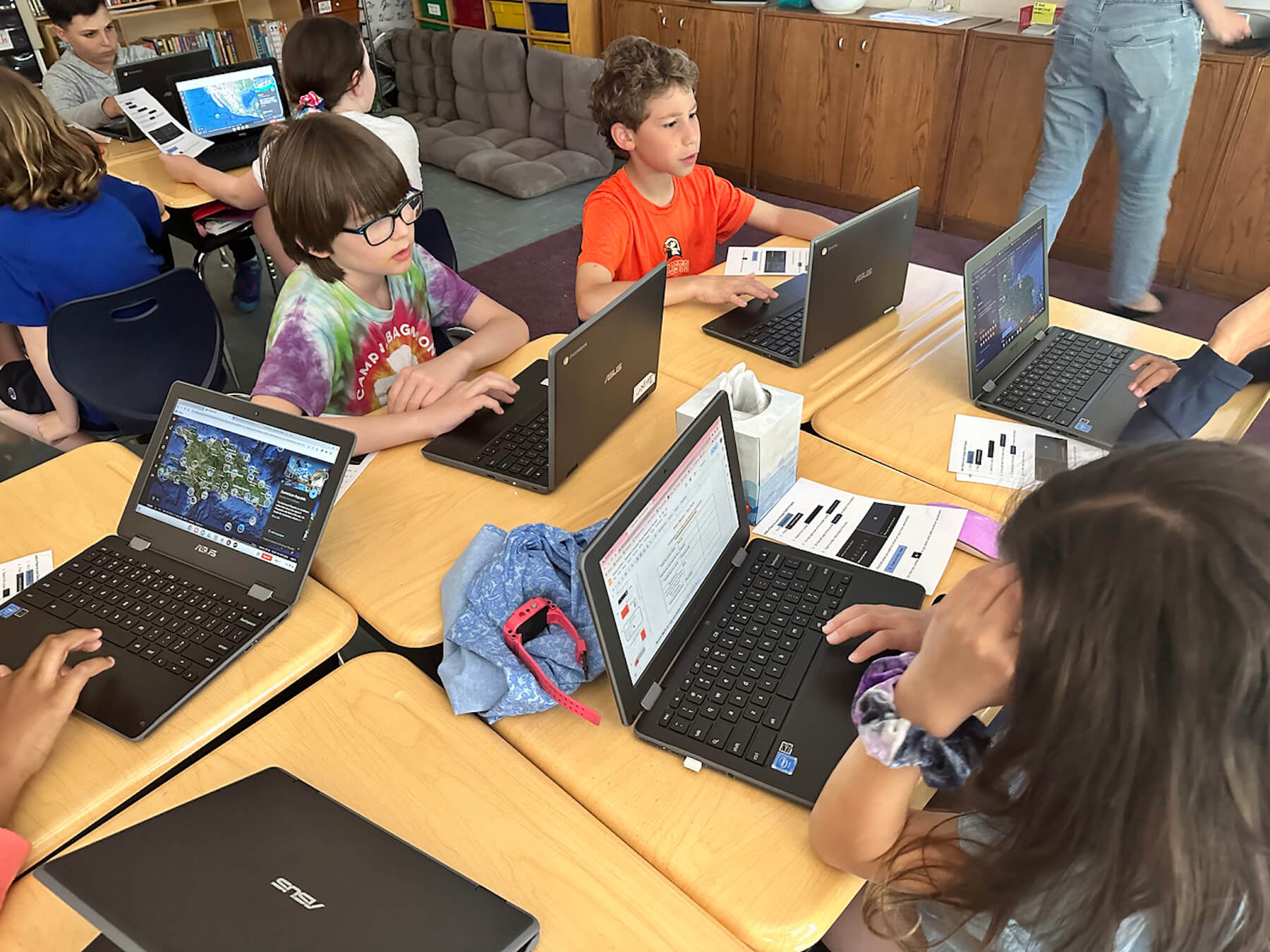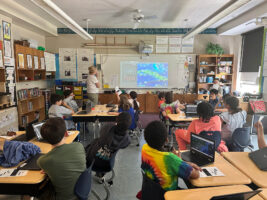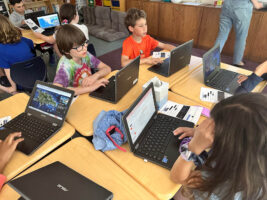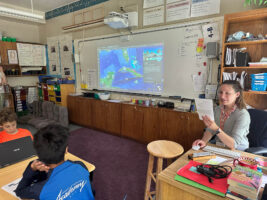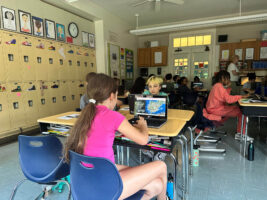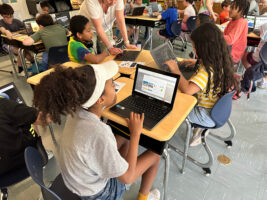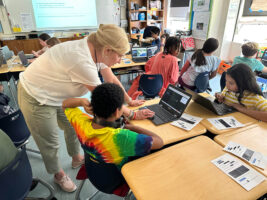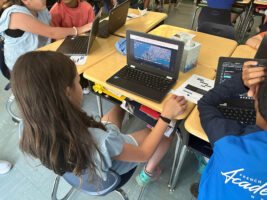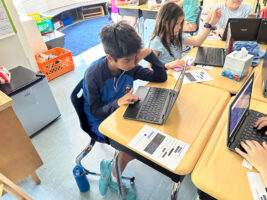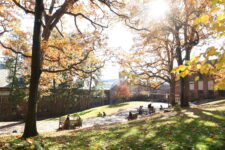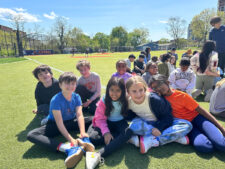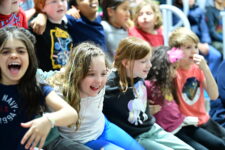The Ethical Culture Fieldston School’s academic programming is centered on 10 core tenets of progressive education, one of which emphasizes the value of interdependence. Our curriculum embraces teamwork, empathy, and a dedicated focus on thoughtful collaboration. Each year, Fieldston Lower’s passionate and dynamic teachers continuously explore fresh avenues to inspire and challenge their students, best exemplified by a recent joint project involving Ethics and Technology Lead Kim Deveaux, Librarian Jessica Panek, and Spanish Teacher Cristina Mella. Together, they envisioned a new take on a beloved 4th Grade Spanish project.
“For the last several years, the project was very traditional. Students would research a Spanish-speaking country and then create a poster to showcase their knowledge,” explain Panek and Cristina. “This year, we decided to innovate the project to be more engaging, thoughtful, and interactive. We didn’t just want students to learn facts about their country but to really put themselves in the shoes of someone actually walking the streets and experiencing the language and culture of the country. Using Google Earth to create a virtual walking tour is the perfect tool for that!”
Students would not only be challenged to become “experts” on a chosen Spanish-speaking country, but they would become tour guides, restaurant enthusiasts, historians, and, ultimately, “influencers” encouraging others to visit different destinations. After collecting their research, students would then build a Google Earth tour of their countries, creating an immersive experience for the user.
To introduce the project to the students, Cristina created her own Google Earth tour of the neighborhood where she grew up in Madrid, Spain. Students watched eagerly as her computer mouse navigated to the apartment complex she lived in for many years, and then she took them on a virtual walking tour to her elementary school. “It doesn’t look very different from New York!” one student excitedly exclaimed. Next, Cristina took students inside a few of her favorite restaurants. Students were able to see the tables, the decorations, and even the menus!
“I loved sharing with the students not only authentic resources but also places and experiences that meant so much to me growing up in a different country. Google Earth is an incredible tool to create maps that tell real-life stories,” says Cristina.
To begin the project, students chose a Spanish-speaking country they wanted to learn more about. “Mi pais es Nicaragua,” one student said. “Mi pais es Uruguay,” said another. Even before they began researching their countries, their excitement was palpable. Thanks to the Fieldston Lower librarians like Panek, students were afforded numerous resources to conduct their research. Starting with basic facts like their country’s capital or where they are located geographically, students soon expanded their knowledge to include historical context, landmarks, and points of interest.
One student, Eli R. ’31, studied Costa Rica and was creating a tour of the best beaches and the most exciting outdoor activities. “Look at this beach — it’s my favorite! It’s on the Pacific coast of the country. Did you know that Costa Rica has beaches on both the Pacific Ocean and the Caribbean Sea?” he said as he pointed to a scenic shot of Tamarindo Beach. Eli even identified his favorite restaurant: “They are known for their casado, which is sort of like the national dish of Costa Rica. A casado usually has rice, beans, plantains, and chicken. I hope I get to go there when I visit.”
Another student, Adaeze O. ’31, was researching the Fingers de Punta del Este, a popular destination in Uruguay. Because of the technological capabilities, Adaeze could take a virtual walk on the beach. “It’s kind of like we are there!” she exclaimed.

“This project introduced students to a new way to use technology as a creative tool. They supported each other as they became experts not only in navigating Google Earth but also in creating their tours and finding interesting places and views to highlight in their country,” says Deveaux.
Students continue to perfect their Google Earth tours and will share their final presentations just before the last day of school. We can’t wait to see their virtual creations!
